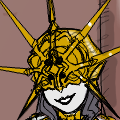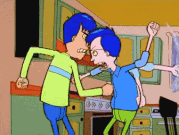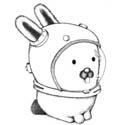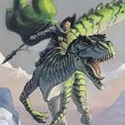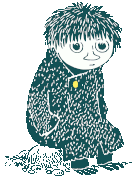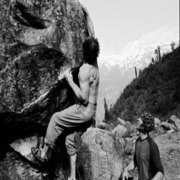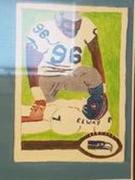|
JG Ballard set most of his stuff there, though he's a long way from Cheever.
|
|
|
|

|
| # ? Apr 28, 2024 22:19 |
|
Big Mad Drongo posted:I read John Cheever's short story "The Swimmer" a while back and it's really stuck with me. I'd recommend it to anyone looking for a quick, accessible read about wealth, happiness and suburban life. Robert Coover's The Babysitter
|
|
|
|
After reading 100 Years of Solitude and a smattering of Hemmingway, I decided to take a quick genre fiction break and read Neil Gaiman's newest(?) novel, The Ocean at the End of the Lane. Now, I'm a bit unclear about something. What exactly is the defining trait that separates genre fiction from real literature? Verne and Wells are happily included in the beginning of this thread as required reading, but I'm not sure I understand why. Their stories are amazing, of course, but they are just that: good stories. Is it merely the fact that they did it first, and well? The line is clearer of course with Orwell and Huxley because they wrote with obvious purpose. But what of newer dystopian fiction that specifically targets modern trends or concerns? And where the gently caress does Philip K. Dick fall into this? I love that guy. Is quality the only thing that prevents most sci-fi from being ~actual literature~?
|
|
|
|
Dirty_Moses posted:After reading 100 Years of Solitude and a smattering of Hemmingway, I decided to take a quick genre fiction break and read Neil Gaiman's newest(?) novel, The Ocean at the End of the Lane. Now, I'm a bit unclear about something. If you have to ask if something is genre fiction or not, it isn't. Genre fiction are books that are written and marketed explicitly as books part of a certain genre. Wikipedia definition: Genre fiction, also known as popular fiction, is plot-driven fictional works written with the intent of fitting into a specific literary genre, in order to appeal to readers and fans already familiar with that genre. Verne, Wells and all writers that "did something first" are by definition not writing genre fiction.
|
|
|
|
Walh Hara posted:If you have to ask if something is genre fiction or not, it isn't. Genre fiction are books that are written and marketed explicitly as books part of a certain genre. Wikipedia definition: Genre fiction, also known as popular fiction, is plot-driven fictional works written with the intent of fitting into a specific literary genre, in order to appeal to readers and fans already familiar with that genre.
|
|
|
|
TheFallenEvincar posted:What about the likes of Arthur C. Clarke? No because he beat Pynchon for the Nebula
|
|
|
|
TheFallenEvincar posted:What about the likes of Arthur C. Clarke? Generally, if you can find it on the scifi/fantasy/paranormal romance/detective/horror/whatever shelf in a bookstore, it'll be called genre by someone. Usually, if the book's not about makeouts, elves, spaceships, or stopping the terrists, it's not going to count as genre. There are exceptions, sure, especially if the book has a dumb meandering plot and was written by a white man, but generally that's a decent place to start. Also, consider what the author was trying to write - authors will sell their work with their words, and if they say "this is a weird fantasy story" or "... in a world where ..." it's probably genre, whereas if they say poo poo like "voice of a generation" or "cultural zeitgeist" or "depressed" it's more likely not. Arthur C. Clarke wrote science fiction, and wrote it proudly; he wanted to write about the could-be, not the currently-is. That's not a hard line-in-the-sand point either, that's just what he did. He was super drat good at it too.
|
|
|
|
Hate Fibration posted:Whoever recommended The Accursed, I want to thank them. I picked it up on their suggestion in this thread, and it's fantastic so far. I'm so glad you're enjoying it! I hope you pop back in and let me know what you think of it when you're finished - it's a book that's made to be discussed.
|
|
|
|
What are everyone's thoughts on William Gass and/or Alice Munro? Part of the reason I haven't really posted much in these sorts of threads until now is that I hate both the genre writers who get most of the discussion in TBB and a lot of the living writers who're hailed as literary nowadays. Mostly McCarthy, now that I've read some of the authors who had a major influence on him and found Faulkner in particular to be much better. But also Franzen, DeLillo, Saunders, Murakami, Martin Amis, and The Art of Fielding, out of what I've seen recommended around here, for instance, as well as all of the contemporary lit mags I've tried/had to read (and the n+1 and McSweeney's groups in particular, though also Loren Stein as the head of The Paris Review). I haven't read Pynchon or Mo Yan yet, and I'll try to get around to them pretty quickly after my current backlog clears up, but I don't see Gass or Munro talked about as much, if at all, and since I like and at least kind of know them I'm curious.
|
|
|
|
Big Mad Drongo posted:I read John Cheever's short story "The Swimmer" a while back and it's really stuck with me. I'd recommend it to anyone looking for a quick, accessible read about wealth, happiness and suburban life. There's a good movie based on this story too.
|
|
|
|
Big Mad Drongo posted:Any other authors/stories that combine a deconstruction of suburbia with surrealism? That's a lot. DeLillo, Franzen, Eugenides surely. Revolutionary Road is a big classic. Meloy's Liars and Saints is great. Millhauser is surreal. Bret Easton Ellis' fake memoirs. Tsiolkas' The Slap. Perotta. William Trevor.
|
|
|
|
All Nines posted:What are everyone's thoughts on William Gass and/or Alice Munro? Part of the reason I haven't really posted much in these sorts of threads until now is that I hate both the genre writers who get most of the discussion in TBB and a lot of the living writers who're hailed as literary nowadays. Mostly McCarthy, now that I've read some of the authors who had a major influence on him and found Faulkner in particular to be much better. But also Franzen, DeLillo, Saunders, Murakami, Martin Amis, and The Art of Fielding, out of what I've seen recommended around here, for instance, as well as all of the contemporary lit mags I've tried/had to read (and the n+1 and McSweeney's groups in particular, though also Loren Stein as the head of The Paris Review). I haven't read Pynchon or Mo Yan yet, and I'll try to get around to them pretty quickly after my current backlog clears up, but I don't see Gass or Munro talked about as much, if at all, and since I like and at least kind of know them I'm curious. I also dislike Franzen and DeLillo. Pynchon's better, he's got a bit more life in his characters when he's at his best, which is what I find so dispiriting with that crop. I've not read much Gass but that wont stop me from recommending Omensetter's Luck as a good entry point. It's short, has something approaching a traditional plot, and is representative of his prose style, which is basically a dirty-minded bitter man who wont stop punning.
|
|
|
|
All Nines posted:What are everyone's thoughts on William Gass and/or Alice Munro? Part of the reason I haven't really posted much in these sorts of threads until now is that I hate both the genre writers who get most of the discussion in TBB and a lot of the living writers who're hailed as literary nowadays. Mostly McCarthy, now that I've read some of the authors who had a major influence on him and found Faulkner in particular to be much better. But also Franzen, DeLillo, Saunders, Murakami, Martin Amis, and The Art of Fielding, out of what I've seen recommended around here, for instance, as well as all of the contemporary lit mags I've tried/had to read (and the n+1 and McSweeney's groups in particular, though also Loren Stein as the head of The Paris Review). I haven't read Pynchon or Mo Yan yet, and I'll try to get around to them pretty quickly after my current backlog clears up, but I don't see Gass or Munro talked about as much, if at all, and since I like and at least kind of know them I'm curious. I really like Munroe, I've only read Lives of Girls and Women so far but it's a nice little collection of related short stories. I am definitely going to check out some of her other works in the future, although I did hear complaints of her being a bit formulaic.
|
|
|
|
Mr. Squishy posted:I also dislike Franzen and DeLillo. Pynchon's better, he's got a bit more life in his characters when he's at his best, which is what I find so dispiriting with that crop. I've not read much Gass but that wont stop me from recommending Omensetter's Luck as a good entry point. It's short, has something approaching a traditional plot, and is representative of his prose style, which is basically a dirty-minded bitter man who wont stop punning. Good to hear from someone who shares my distaste for those other two writers that Pynchon's better. I'll have to bump him up a bit higher on my list. And I like that description of Gass's style and tendencies--even though I've only read Cartesian Sonata and a bit of his arguing with John Gardner so far, that's very accurate. I guess I'll try Omensetter's Luck next. I should probably balance between shorter and longer works as I read him, and if I remember correctly this was his debut novel? Lumius posted:I really like Munroe, I've only read Lives of Girls and Women so far but it's a nice little collection of related short stories. I am definitely going to check out some of her other works in the future, although I did hear complaints of her being a bit formulaic. I ended up buying Dear Life when I visited The Strand a little while ago, but Lives of Girls and Women is actually the one I was looking for, yeah. If I like Dear Life enough I'll probably order the other book online if I have to. But even though I honestly haven't read that much of her stuff yet, I can see the formula complaint making sense, since she has, what, only one novel or novelistic collection among the decades worth of short story collections she's put out?--and since she apparently mostly uses Ontario for a setting. But hopefully there's at least more diversity within a collection by itself.
|
|
|
|
Gass's Reading Rilke is a great read. The how & why of translations. It's funny and personal, sometimes brutal on translators, uses the phrase "reclenching poetic outbursts", and paints a good picture of that funeral wreath sentiment favorite Rilke. Quote from the first page: "The poet himself is as close to me as any human being has ever been; not because he has allowed himself—now a shade—at last to be loved; and not because I have been able to obey the stern command from his archaic torso of Apollo to change my life, nor because his person was always so admirable it had to be imitated; but because his work has taught me what real art ought to be; how it can matter to a life through its lifetime; how commitment can course like blood through the body of your words until the writing stirs, rises, opens its eyes; and, finally, because his work allows me to measure what we call achievement: how tall his is, how small mine."
|
|
|
|
is Doris Lessing worth a read? it just occurred to me that the only female authors I've read are Mary Shelly, Agatha Christie, and some assorted children's book authors like Astrid Lindgren and so on I've got Atwood and Ursula Le Guin on my list, but I'm extremely hesitant to bother with sci-fi again
|
|
|
|
ulvir posted:is Doris Lessing worth a read? it just occurred to me that the only female authors I've read are Mary Shelly, Agatha Christie, and some assorted children's book authors like Astrid Lindgren and so on Ever since we had the Nobel winner thread, I've put her down on my to-read list but focused on her earlier stuff such as The Golden Notebook, since her work is quite distinct and she's better known for her non sci-fi work according to what little I've googled but it's just an assumption. I know that you asked for a good female writer who is associated with Sci-fi but would you consider reading Helen Dewitt's The Last Samurai? I read it a while ago and found it to be pretty clever for a debut novel; it's not without flaws, the prose and the un-edited sentences leave a lot to be desired but there are a lot of good stories that make you think. I had to struggle to come up with well-written, non-genre, female-author literature that have come out in the last twenty or so years and found it fairly embarrassing that the only one that came to mind is the one I've recommended. Similarly, in keeping up with this thread, I'm also looking for contemporaneous (give or take 20 years), well-written, non-genre works by female authors if such recommendations are to be had.
|
|
|
|
ulvir posted:is Doris Lessing worth a read? it just occurred to me that the only female authors I've read are Mary Shelly, Agatha Christie, and some assorted children's book authors like Astrid Lindgren and so on Doris Lessing is incredible, yes, though I realise the most recent thing of hers I read was Mara and Dann which is arguably scifi as well so 
|
|
|
|
The term genre fiction only makes sense as a term of abuse.
|
|
|
|
HopperUK posted:Doris Lessing is incredible, yes, though I realise the most recent thing of hers I read was Mara and Dann which is arguably scifi as well so Furious Lobster posted:Ever since we had the Nobel winner thread, I've put her down on my to-read list but focused on her earlier stuff such as The Golden Notebook, since her work is quite distinct and she's better known for her non sci-fi work according to what little I've googled but it's just an assumption. I'll add her to my list, then. Thanks. Furious Lobster posted:I know that you asked for a good female writer who is associated with Sci-fi but would you consider reading Helen Dewitt's The Last Samurai? I read it a while ago and found it to be pretty clever for a debut novel; it's not without flaws, the prose and the un-edited sentences leave a lot to be desired but there are a lot of good stories that make you think. Oh no, I wasn't specifically looking for sci-fi authors, quite the opposite if anything. I didn't even know Lessing wrote sci-fi. I'll throw in Dewitt as well.
|
|
|
|
ulvir posted:is Doris Lessing worth a read? it just occurred to me that the only female authors I've read are Mary Shelly, Agatha Christie, and some assorted children's book authors like Astrid Lindgren and so on I have no experience with Le Guin but Atwood is real good and if you want to lean away from the sci-fi just get The Handmaiden's Tale since it is only really sci-fi in that it is metaphorical post-apoc future a la The Road. Or like The Blind Assassin or her other non-sci-fi stuff which I haven't read. The MaddAddam stuff is much more sci-fi but it is also more reflective and metaphorical like good sci-fi should be. Other good non-genre female authors I have read in the past year or so and liked: Joyce Carol Oates Flannery O'Connor Pearl S. Buck Dava Sobel (she writes non-fic but is still good)
|
|
|
|
Furious Lobster posted:I had to struggle to come up with well-written, non-genre, female-author literature that have come out in the last twenty or so years and found it fairly embarrassing that the only one that came to mind is the one I've recommended. Similarly, in keeping up with this thread, I'm also looking for contemporaneous (give or take 20 years), well-written, non-genre works by female authors if such recommendations are to be had. Lydia Davis is good here's one of her short stories picked at semi random: Mother's Reaction to My Travel Plans Gainesville! It's too bad your cousin is dead!
|
|
|
|
CestMoi posted:Lydia Davis is good here's one of her short stories picked at semi random: Cheers, thanks for the info, I added her collected short stories to my list.
|
|
|
|
Furious Lobster posted:Ever since we had the Nobel winner thread, I've put her down on my to-read list but focused on her earlier stuff such as The Golden Notebook, since her work is quite distinct and she's better known for her non sci-fi work according to what little I've googled but it's just an assumption. A.S. Byatt (especially Possession) - a little outside your 20 years (published 1990) All of her stuff is amazing. I also really liked Angels and Insects. Jeanette Winterson - Gut Symetries, Written on the Body, Sexing the Cherry, Oranges are Not the Only Fruit (written Mid 1980's to late 1990's. Very GBLT. Donna Tartt - The Secret History (2004), The Goldfinch (2013) We've talked about her already in this thread. If you haven't read The Secret History you should. Zoe Heller - What Was She Thinking? Notes on a Scandal (2003) Francine Prose - The Blue Angel (2000) Maria McCann -As Meat Loves Salt (2001) - this is historical fiction but it's amazing and still worth a read Janette Turner Hospital - Oyster (1996)
|
|
|
ulvir posted:is Doris Lessing worth a read? it just occurred to me that the only female authors I've read are Mary Shelly, Agatha Christie, and some assorted children's book authors like Astrid Lindgren and so on The BotM poll we just did has five different female authors that are good in different ways (thread here: http://forums.somethingawful.com/showthread.php?threadid=3646297 )
|
|
|
|
|
Poutling posted:A.S. Byatt (especially Possession) - a little outside your 20 years (published 1990) All of her stuff is amazing. I also really liked Angels and Insects. Thank you as well! Someone mentioned Possession either in this thread or another one so I definitely have that waiting for me. I read the aformentioned Tartt novel and definitely enjoyed it and didn't realize that she had written another one, so more books to be consumed; I also adore all types of historical fiction so, thanks for the McCann suggestion. I have read Blue Angel and it's been a fairly long time but all I remember is that it wasn't really my cup of tea. I do remember someone else talking about Winterson but along with her, I'm fairly neutral to Zoe Heller and Janette Hospital. Which of the three would you pick as being the best because my to-read list is going to be ridiculous (it's a good problem to have)?
|
|
|
|
Furious Lobster posted:Thank you as well! Someone mentioned Possession either in this thread or another one so I definitely have that waiting for me. I read the aformentioned Tartt novel and definitely enjoyed it and didn't realize that she had written another one, so more books to be consumed; I also adore all types of historical fiction so, thanks for the McCann suggestion. I have read Blue Angel and it's been a fairly long time but all I remember is that it wasn't really my cup of tea. Winterson is probably the most highly regarded so you should probably check her out, but I love Zoe Heller's What Was She Thinking? I totally have a thing for unreliable narrators though, and it's *very* much a book written by a woman, I think that puts some people off, so YMMV. If you like historical fiction you should read Mary Renault's The Last of the Wine with us for the next Book of the Month club. She is a fantastic historical fiction author.
|
|
|
|
(American south) historical by women: Eudora Welty, Shirley Ann Grau, Gayl Jones. Check out Francine Prose, Mavis Gallant, Jhumpa Lahiri, Gina Berriault, Frances Hwang,.. Elizabeth Hardwick wrote about her writing in Sleepless Nights, and about women writers in Seduction and Betrayal. Renata Adler is a personal favorite. Recent releases would be Jenny Offill's Dept. of Speculation, and Laura McHugh's The Weight of Blood. Lydia Davis is really good, but start with The End of the Story, anything else has some poetry that doesn't rhyme or stories with just one sentence. Edit: Apparently Lydia Davis did the recent Proust temps perdu translation, so she does know poetry and I'm dumb. i am paul newman fucked around with this message at 00:12 on Jul 3, 2014 |
|
|
|
i am paul newman posted:Laura McHugh's The Weight of Blood. The Weight of Blood was okay but I don't think I'd classify it as 'amazing' and not sure I would suggest it to someone who was trying to read a 'best of lit-fic' by women. I actually enjoy Gillian Flynn's work more but I'd say that was very genre. If you like her though you should try Hannah Richell's The Shadow Year. It's also very Secret History-esque for Donna Tartt fans(though again, falls short of the mark).
|
|
|
|
Trashols
rest his guts fucked around with this message at 16:13 on Jun 24, 2019 |
|
|
|
Finally, a great TBB thread that's still alive. I finished reading this thread and directly proceeded to packing books for my 3 weeks off. Now I want you all to behold my refined taste and comment on how I get to enjoy reading more books this summer, rather than just reading the right authors. On the ipad, the final bits of Daniel Defoe's A journal of the Plague Year. What a weird story, told by an eyewitness who claims enormous authority but was a kid when the Plague visited London. In the pile: some Gogol (The Nose, and The Cape/cloak), Bulgakov's The Master and Margarita with which I somehow lost contact (everybody please read his A Country Doctor's Notebook), selected poems by fellow Dane Henrik Nordbrandt, a Penguin collection of Orwells's works titled Why I Write (it does include Politics and the English language), Kevin Liu's Craft Cocktails at Home, Seneca's On the Shortness of Life, Gorki's Konovalov (chance find ages ago - is it any good?) and Flannery O'Connors two novels and eight short stories. Will my ambition kill my reading? What do I need to make it more funny? Mo Yan? Inherent Vice? I would have no regrets only reading a third of the above, but I thought I'd bring enough. Tia.
|
|
|
|
Fly McCool posted:I am currently reading War and Peace, and I gotta ask, how are you lost by page 2? It's all exposition, and a lot of the joy in reading the book comes from Tolstoy's ability to capture the minutiae; those little moments in life that amount to a lot more than they seem. I particularly enjoyed Part I because Tolstoy, like many Russian luminaries before him, really seems to understand the absurd and tedious, if not entirely vacuous, nature of court life. Annette's portrayal as spindle foreman is one of the best metaphors for the ebb and flow of inane conversation I have ever read. I recently finished Vasily Grossman's "Life and Fate," which is set during world war two during the siege of Stalingrad and borrows a lot stylistically from Tolstoy. Grossman is not as penetrating a writer as Tolstoy at understanding human experience,but it was still a great book. If you like "War and Peace" I would certainly recommend you check out Grossman in the near future.
|
|
|
|
Is this the thread where goons pretend to be able to stand Jonathan Franzen for imaginary literacy points?
|
|
|
|
Probably, but it's also a place where you can set up strawmen to knock down and look very cool. If anyone's looking into reading Mo Yan, Pow! is not a great place to start. It's singularly focused on meat, meat, meat. I understand that he's trying to show China's tremendously crooked slaughterhouse industry, but man. The word "meat" shows up at least 4 times per page, mostly about how the narrator loves meat and meat loves him and he's the only one who deserves to eat the best meat and such like that. I'm not going to give up on him - I've heard good things about Life and Death are Wearing Me Out and Big Breasts, Wide Hips. But this wouldn't be my first recommendation for anyone.
|
|
|
|
Ogmius815 posted:Is this the thread where goons pretend to be able to stand Jonathan Franzen for imaginary literacy points? Liking Franzen actually has those points deducted.
|
|
|
|
Ogmius815 posted:Is this the thread where goons pretend to be able to stand Jonathan Franzen for imaginary literacy points?
|
|
|
|
Chamberk posted:If anyone's looking into reading Mo Yan, Pow! is not a great place to start. It's singularly focused on meat, meat, meat. I understand that he's trying to show China's tremendously crooked slaughterhouse industry, but man. The word "meat" shows up at least 4 times per page, mostly about how the narrator loves meat and meat loves him and he's the only one who deserves to eat the best meat and such like that.
|
|
|
|
Chamberk posted:
that sounds freaking awesome, i'm going to pick it up!!
|
|
|
|
Furious Lobster posted:
There's Louise Erdrich. She's also good for anyone looking for contemporary Native American writers other than Alexie, Momaday, and Silko. The Round House was excellent and I really, really liked The Plague of Doves. Just a note about her writing: if Cormac McCarthy's writing style doesn't work for you, you'll probably dislike Erdrich's writing style as well.
|
|
|
|

|
| # ? Apr 28, 2024 22:19 |
|
There's no problem with science fiction and fantasy, the problem is with formulaic poo poo which doesn't innovate. "Genre fiction" is bad because it's so formulaic you can describe it adequately in terms of a genre. ie. You can say "It's fantasy" and nothing inside the book will make the reader question that - genre fiction is "books that are written and marketed explicitly as books part of a certain genre... in order to appeal to readers and fans already familiar with that genre." Books written to make money. There's an Elf-analogue, a Dwarf-analogue, a formulaic-scientific system of magic. The Elf-analogue might be descended from the Sun or something, but it doesn't really diverge from your expectation of what an Elf should be. Nothing diverges significantly from your expectations of what a 'Fantasy' novel is. Genre fiction has to adhere to a canon + a set of clear and consistent conventions so nerds can cite them to each other in order to demonstrate knowledge. Conventions have to be consistent so disputes can be resolved definitively and nerds can establish dominance over other nerds. It's secret club thinking - "Ha ha, George R.R. Martin always kills off his characters. If I drop this into a conversation I will demonstrate knowledge and familiarity with the works of George R.R. Martin and win the acclaim of anyone who knows what I'm talking about and we can both jack each other off about how much we know about George R.R. Martin. That guy doesn't know about George R.R. Martin so we can exclude him from our conversation because we can only feel like we belong somewhere if we're excluding someone else." If you want a cool, fantastic bunch of books read Mervyn Peake's Gormenghast trilogy. Titus Groan posted:“Swelter's eyes meet those of his enemy, and never has there held between four globes of gristle so sinister a hell of hatred. Had the flesh, the fibres, and the bones of the chef and those of Mr Flay been conjured away and away down that dark corridor leaving only their four eyes suspended in mid-air outside the Earl's door, then, surely, they must have reddened to the hue of Mars, reddened and smouldered, and at last broken into flame, so intense was their hatred - broken into flame and circled about one another in ever-narrowing gyres and in swifter and yet swifter flight until, merged into one sizzling globe of ire they must surely have fled, the four in one, leaving a trail of blood behind them in the cold grey air of the corridor, until, screaming as they fly beneath innumerable arches and down the endless passageways of Gormenghast, they found their eyeless bodies once again, and reentrenched themselves in startled sockets.”
|
|
|






